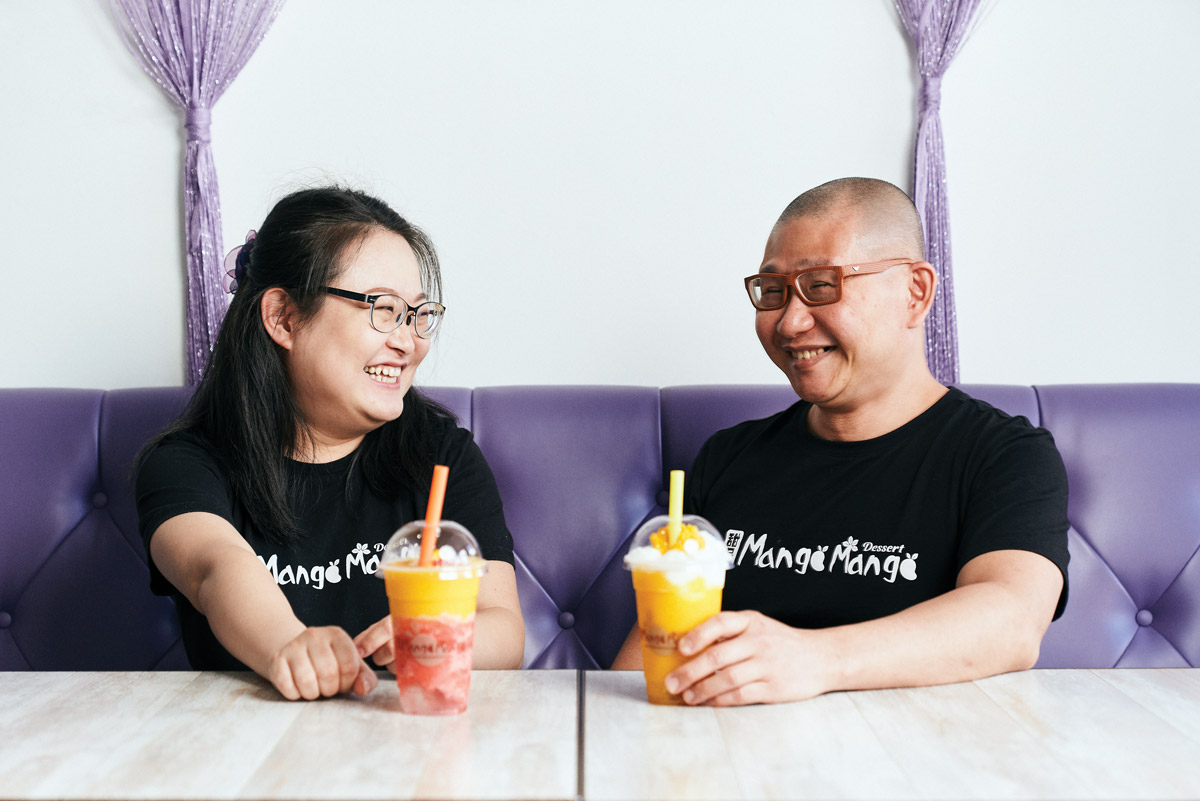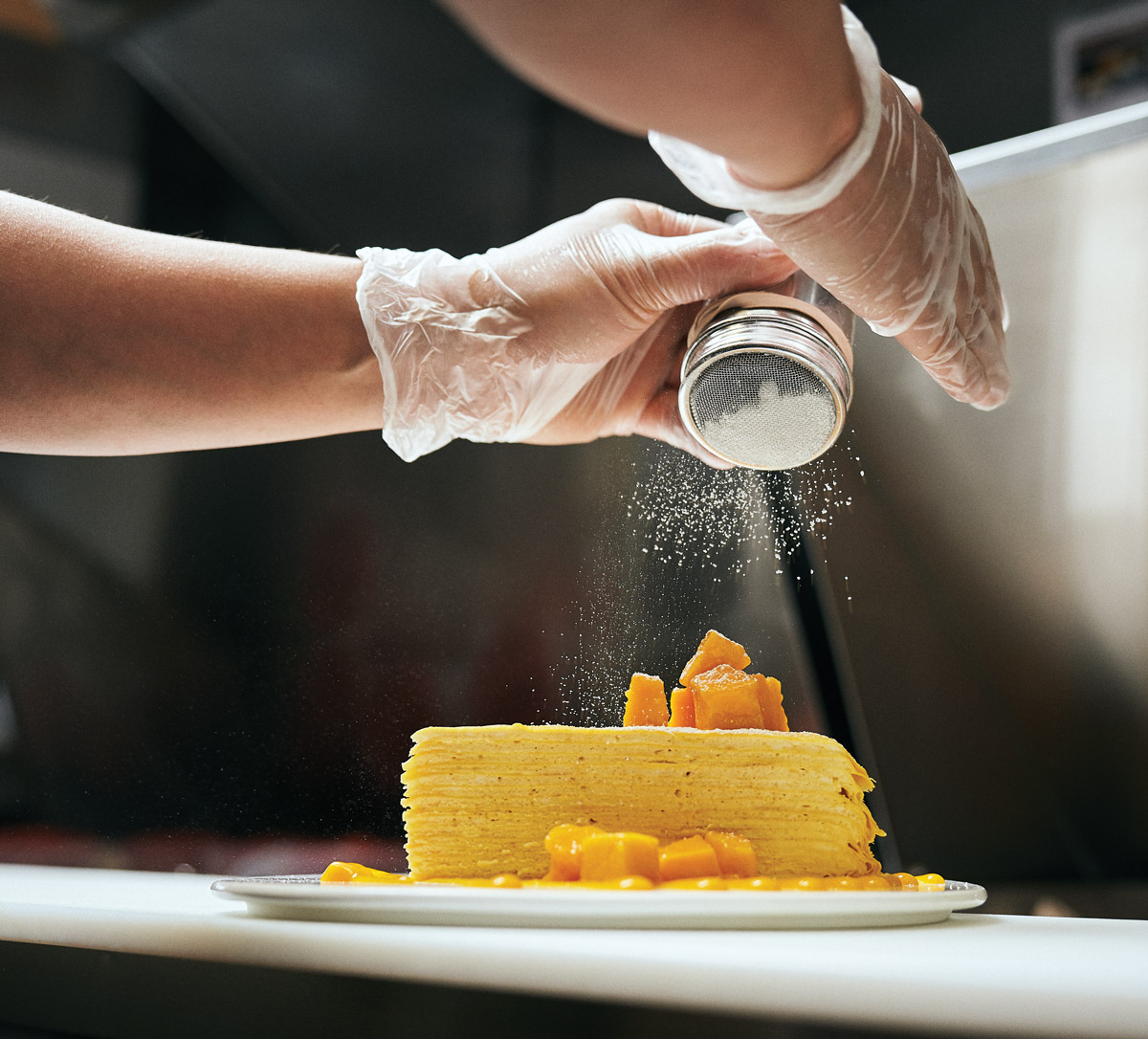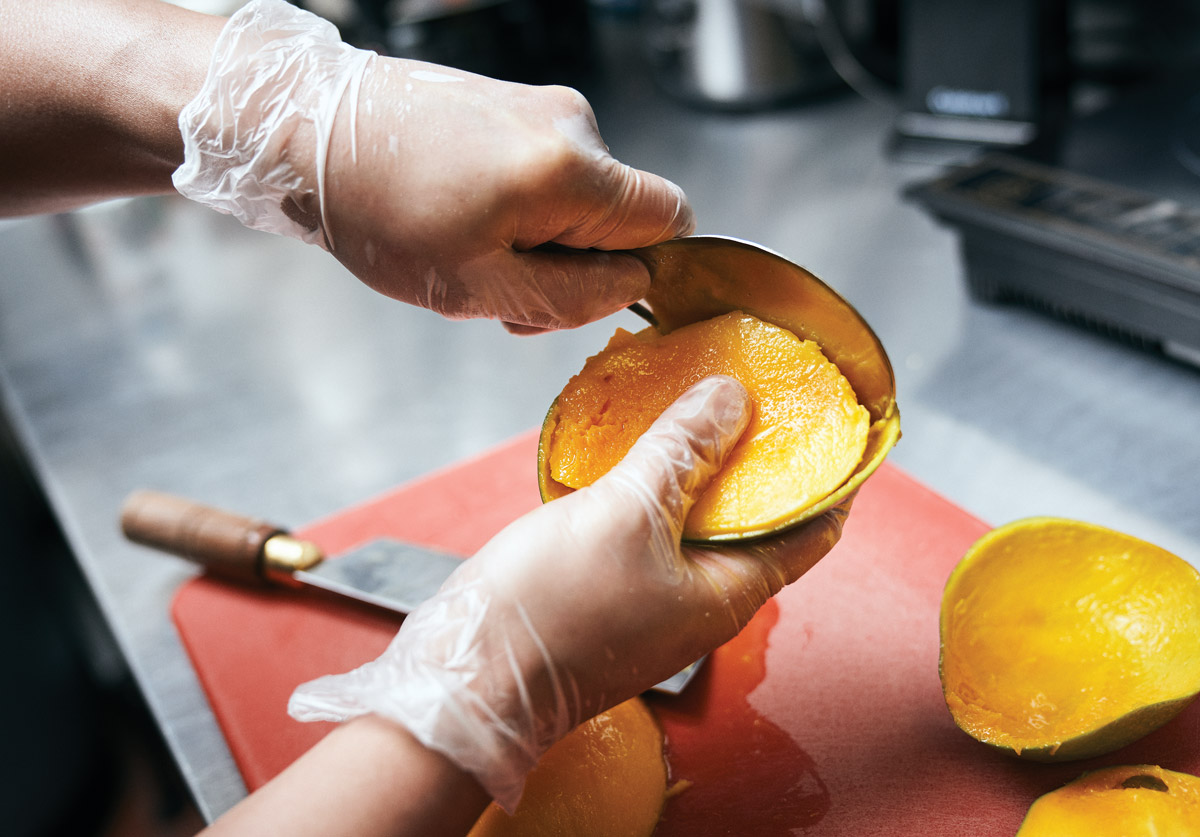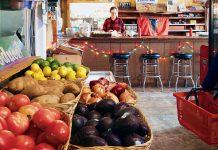
Photograph by Ben Rollins
 Cindy Cheng and Jet Lee wake up every Wednesday with an urgent mission: track down the very best Ataulfo, Kent, or Tommy Atkins mangoes—100 boxes of each—in town. Their hunt takes them to City Farmers Market in Chamblee, Buford Highway Farmers Market in Doraville, Atlanta Farmers Market in Forest Park, and Your DeKalb Farmers Market in Decatur. “Sometimes, we call ahead to find out how much mango they have and when a fresh batch will arrive,” Lee says. “We have good relationships with the suppliers, so they often save the best mangoes for us.”
Cindy Cheng and Jet Lee wake up every Wednesday with an urgent mission: track down the very best Ataulfo, Kent, or Tommy Atkins mangoes—100 boxes of each—in town. Their hunt takes them to City Farmers Market in Chamblee, Buford Highway Farmers Market in Doraville, Atlanta Farmers Market in Forest Park, and Your DeKalb Farmers Market in Decatur. “Sometimes, we call ahead to find out how much mango they have and when a fresh batch will arrive,” Lee says. “We have good relationships with the suppliers, so they often save the best mangoes for us.”
Lee and Cheng’s full-time mango mania stems from a warm summer day three years ago in Queens, where they lived before moving to Atlanta. Lee, who immigrated to the U.S. from Singapore, had met Cheng, a Daemen College master’s student from Northern China, at a networking event in 2012. They bonded over their passion for food—particularly dessert. Lee shows me a Facebook post from August 2015: “We had mango pancakes, mango juice sago and pomelo with mango ice cream, and mango juice with glutinous rice ball with mango ice cream!” He was referring to their discovery of a dessert spot in Flushing called Mango Mango.
Though they both worked steady jobs—Cheng as a freelance health coach and Lee as the manager of an online-shopping franchise—they were looking for a change, perhaps an opportunity that would allow them to express themselves and be their own boss. “We had a dream to own our own store, like a cafe or dessert place,” says Cheng, who has a bachelor’s degree in biochemistry and master’s in global economy. In late 2016, the couple approached the owner of the Chinatown-based company that owned the four New York locations of Mango Mango, which they had grown to love, and asked about opening a franchise in Atlanta on Buford Highway. “Cindy bought an investment property in Duluth without even telling me!” Lee says. He liked the idea of moving to the South, with its promising business opportunities and affordable cost of living.

Photograph by Ben Rollins
Since opening Mango Mango on Buford Highway in April 2018, their days revolve around picking, buying, peeling, and cutting mangoes for desserts such as ice creams, juices, jellies, crepes, and pancakes. “To pick a good mango, smell it first,” Lee says. “It should be fragrant, tropical, and sweet. A bad one smells sour or bitter. The color is not important, but make sure to touch. A firm mango will keep for a couple of days, whereas a soft one will have to be used right away. That’s why we can’t preorder mangoes from a supplier. We have to touch and smell it.”
With close to 50 items on Mango Mango’s menu, Cheng and Lee have to work fast in the kitchen, in tight proximity, often for 10 to 12 hours a day. “That’s when the fast-paced New Yorker in me surfaces,” says Lee, who follows detailed pictorial instructions with steps written in Mandarin (he designed the laminated recipe cards himself). He and Cheng also boil red beans, steam rice, feed fresh fruits into an ice-cream maker, and juice strawberries, bananas, kiwis, and pineapples.
They use a Chinese cleaver to carefully dice 60 mangoes per hour into small cubes for toppings and large ones for dessert bowls, reserving odd shapes for juicing. Relying on a special technique they learned during their two-week franchise training, they make full use of every last bit of fruit. Only the skin and seed are thrown away.

Photograph by Ben Rollins
They also use durian—called “corpse fruit” for its putrid smell (it tastes, incongruously, like caramel custard). Cheng was not familiar with durian growing up in China, but once Lee introduced it to her, she was hooked. “I love strange foods,” she says, “and durian has a special, creamy flavor.” (Customers do, however, complain of “smelling gas” in the store on the days Cheng and Lee make durian ice cream.)
Cheng relies on frozen durian imported from Thailand and Malaysia for her pastry cream, which she stuffs into pancakes and her meticulous mille-crepe cakes. The cake requires 20 thin crepes to be layered with spoonfuls of mango, durian, and green tea–flavored cream. “It is a repetitive job, and you need to be very careful to maintain the shape of the cake,” she says. “If one layer is not even, the entire cake will collapse, which means I’ll have to start all over.” At first, it took her more than two hours to assemble a single cake. Now, she does it in 45 minutes. Some days, she makes as many as 15 of them.
“When people order a dessert, it’s not just to eat,” Cheng says. “It’s to enjoy the mood and the moment. My customers pay for pretty memories, and that’s what I deliver.”
5177 Buford Highway, Doraville, 678-395-7094
This article appears in our October 2019 issue.









![The North Carolina Museum of Natural Sciences’ newest exhibit is a [pre]historic first](https://cdn2.atlantamagazine.com/wp-content/uploads/sites/4/2024/04/DD-3-100x70.jpg)



